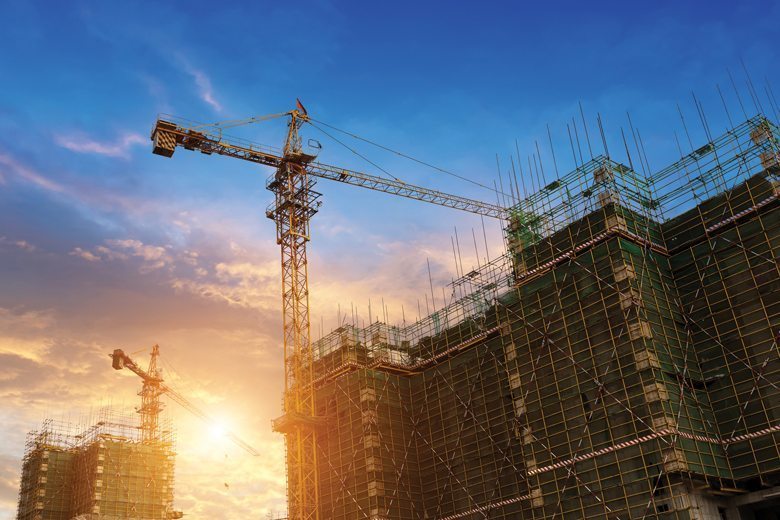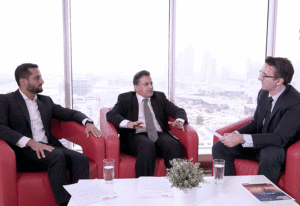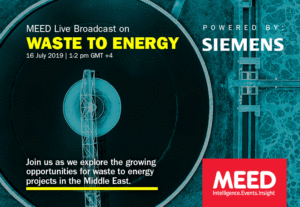

As well as seeking cost-effective ways to deliver projects, developers are focusing on sustainability, smart technology and building safety
Saudi Arabias introduction of strict spending constraints last year gave an indication of the direction the Gulf projects market would take in 2016. Many of the themes seen in design, engineering, planning and finance can be traced back to the tough economic climate confronting oil-dependent Gulf economies, and the need for sponsors to adapt to survive.
Whether the result is longer project timetables, less gold-plating of those contracts that do get the green light, more private financing and performance-related terms, or an emphasis on socio-economic benefits, most trends have a root in the prevailing challenging economic conditions.
Although GCC governments persist in investing massively in infrastructure, they are tightening budgets across the board. Projects are being put on longer timelines and some are being completely cancelled, says Ulrich Koegler, a UAE-based partner with Strategy&, formerly Booz & Company.
Inevitably, project ambitions have been scaled back. For example, whereas once Saudi Arabia was considering six metro projects across its major conurbations, now the focus is simply on getting the Riyadh Metro completed. Linked to this is a massive clamping down on project budgets. One Gulf states Transport Ministry is understood to have shaved $20bn off a key transport project by optimising costs. This means delivering to high standards, but without the excesses typically seen in the region.
Private involvement
Within this context, private financing methodologies have gained renewed appeal. Many had been sceptical about the prospects of public-private partnerships (PPPs) taking off in the GCC in a big way. But the past year has seen private funding and operation of infrastructure seeping beyond its traditional comfort zone of power and water.
Given the need for infrastructure, we expect to see transport and infrastructure PPPs coming through. People are opening their drawers and sifting around for what PPP ideas there are and how they can make them happen, says Koegler.
Dubai has made headway here. Union Oasis, a transit-oriented development alongside the Dubai Metro route, is to be procured under the emirates recently approved PPP law.
The focus is firmly on PPP readiness, says Joss Dare, an infrastructure financing specialist at law firm Ashurst. Its all about developing the legal and institutional framework to be suitable for long-term PPP procurements. That means moving away from traditional procurement methods and identifying which projects are suitable and which arent. All of this is being discussed far more openly than before.
In Saudi Arabia, there is serious talk about whether future projects should be procured using structures that leverage private finance. Whereas this gained some airtime back in 2011, it lost favour in the 2012-15 period. Now, says Dare, it is firmly back on the agenda, with almost all GCC states looking to initiate their own PPP laws following the examples of Dubai and Kuwait, each of which already has such a law in place.
There is always the chance that Gulf projects will revert to traditional lump-sum financing practices once oil prices revive. But, says Dare, the genie will not be put back in the bottle if PPP proponents can use this current window of opportunity to prove it as a cost-efficient delivery mechanism.
Across the board, there is much focus among project sponsors on value for money. This, says Koegler, will become the dominant tool to assess projects in the GCC.
Once you call in the advisers, the standard procedure is to look for value for money as well as tangible socio-economic benefits, he says.
A lot of projects will be reviewed according to these requirements.
More performance-based requirements are being inserted into contracts, which helps procuring authorities deliver on budget and on time. The closer scrutiny on costs is forcing contractors to take on board greater project risks, reducing the use of cost-plus contract styles.
Programme management
In Saudi Arabia, major projects will employ programme management solutions for large, complex developments. The need to contain spending and increase returns will necessitate a complete review of the construction supply chain from masterplanning through design and construction to final operation. The six-line Riyadh Metro, backed by Arriyadh Development Authority (ADA), is one megaproject that is deploying programme management techniques. To ensure it will be delivered on time, the project was divided into three parts, each the responsibility of an international group working under the direction of the ADA and programme manager CH2M.
At the same time, project managers are having to contend with more sustainability requirements. Green building codes are being instituted in Gulf states. Qatars Global Sustainability Assessment System is being adopted by government buildings throughout the country, as well as stadiums, and will apply to stations on the Doha Metro.
Technology is also featuring more strongly, from the use of 3D modelling to show clients what construction projects will look like, to the adoption of smart technologies to drive sustainability, productivity and safety in buildings. This again harks back to the cost-efficiency mantra that has taken root in the region.
Building safety has emerged as a clear theme. The year got off to a bad start in Dubai with a fire at the high-rise Address Downtown hotel, which earned the emirate some unwanted headlines. Real estate consultancy JLL has said building owners will have to adhere to stricter fire safety guidelines from government agencies.
Overall, though, there appear few significant new trends in design and architecture that are evident across the whole GCC project market. The trend for trophy architects to be asked to create something unprecedented bigger, taller and more extreme sustains, with Dubai now looking to outdo Jeddah as the home of the next worlds tallest skyscraper. This focus on giving architects carte blanche to think the unthinkable appears to be a constant in the otherwise changing Gulf projects market.
You might also like...

TotalEnergies to acquire remaining 50% SapuraOMV stake
26 April 2024

Hyundai E&C breaks ground on Jafurah gas project
26 April 2024

Abu Dhabi signs air taxi deals
26 April 2024

Spanish developer to invest in Saudi housing
26 April 2024
A MEED Subscription...
Subscribe or upgrade your current MEED.com package to support your strategic planning with the MENA region’s best source of business information. Proceed to our online shop below to find out more about the features in each package.








